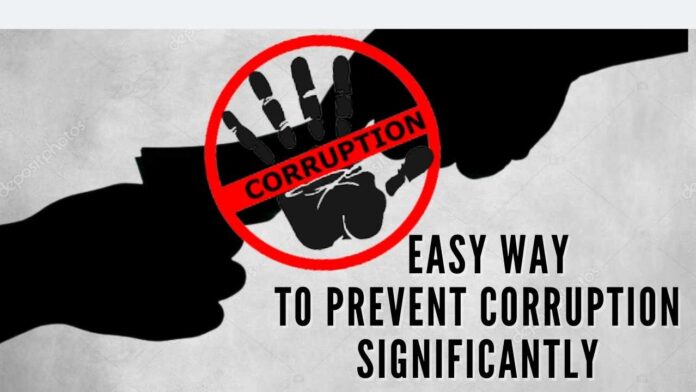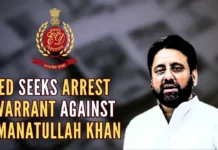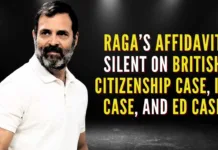
India’s malaise of corruption
I would like to draw the attention of the nation to a very important judgment of the Supreme Court in 2017, wherein Justices P C Ghose and Amitava Roy held in the Sasikala (i.e., Jayalalithaa and 3 others’) case that, in Disproportionate Assets (DA) cases, under the Prevention of Corruption Act, the burden of proving innocence rests with the accused?
I had then written an article in PGurus titled, Jail For Very Corrupt VIP Politicians & Babus Now A Distinct Possibility? hailing this landmark judgment.[1]
I quote below, from that article:
“This, according to Mr. R K Raghavan, former CBI Director, is an unusual dilution of a hitherto-held fundamental principle of law, namely that the onus of proof of guilt is on the prosecution. He had said, “Without this facility in law, many of our VIP offenders would go scot-free”.
“The import of this interpretation has perhaps not been understood fully by anyone, be it politicians, babus or the general public”
“This is as much of a landmark event (if not more) as the enactment of the RTI Act, MNREGA Act, etc, which have created very major impacts on the society. It has the potential to put behind bars, thousands of very corrupt politicians and babus (including very high profile ones). “
“Now, armed with this DA case judgment, the government can put the onus of proving the source of their income on these public servants. The larger the disproportionate assets, the higher are the chances of success of conviction because it will be that much more difficult to prove the source income for large volumes of assets.”
“There’s another positive twist to the tale. Based on the Sasikala case, the government (or we as the case may be) can also ask the people who live with the public servants (regardless of whether they are their relatives or not) to prove their source of income, which makes it tougher for the public servants to hide their corrupt income through such people as their benami.”
I had also observed that this power is not only in the hands of the government but also with the civil society, as demonstrated by Dr. Swamy (even without the benefit of such a judgment, to start with).
More than 5 years have passed since this judgment was given, and still, there appears to be no effort by the Central government, state governments, NGOs, public-spirited social activists, nor anyone else to use this judgment and bring any corrupt to book.
Corruption is a compulsive habit. It’s difficult for the corrupt to cover up all trails when the instances of corruption are many. Yet, the challenge is proof. Corrupt are likely to leave behind trails in the form of disproportionate assets, benami agreements, etc (like even the ace lawyer PC did). All that is required is a prima facie DA case since the burden of proof will be on the accused.
Going by the 80:20 principle, 80% of corruption is likely to be by the top 20% corrupt. Applying it again, 64% (say 2/3rd) of corruption is likely to be by the top 4% of the corrupt. If we start with just the big tickets, the overall corruption will come down substantially.
The total volume of corruption in our system, involving the politicians, bureaucrats, police, judiciary, etc, would be large enough to be equivalent to a big economy. If we just arrest big-ticket corruption, we will become a 5 Trillion Dollar economy, more quickly and easily.
This may sound like an overstatement, but please read my article titled, “Mother Of All Reforms, Will PM Modi Do It?” I have explained in that article, how the cost of corruption is orders of magnitude higher than the actual corruption money involved[2]. So, preventing even a fraction of big-ticket corruption will amount to saving lakhs of crores of rupees every year.
What is needed is the political will and initiatives of public-spirited individuals.
Let me quote again from my previous article:
“After the RTI Act was enacted, many NGOs started popularising it, which led to effective use of RTI Act by very ordinary people, and this had lead to the public good. Similarly, civil society should popularise this SC judgment and make sure that people understand its potential; this can lead to cleansing of Governments and all their organs, at the Central and State levels, and even the judiciary.”
“It is easy to build a whistleblower app through which people can report such cases with Aadhaar-based authentication. Since much of the ground rules for such cases have been established in the Jayalalithaa/ Sasikala case, such cases need not take too long in the courts, in the future. It may even be a good idea to set up separate courts for this purpose and entrust the task of bringing to book, corrupt government servants (including politicians, bureaucrats, judiciary, etc) to Dr. Swamy if he agrees.”
Note:
1. Text in Blue points to additional data on the topic.
2. The views expressed here are those of the author and do not necessarily represent or reflect the views of PGurus.
Reference:
[1] Jail For Very Corrupt VIP Politicians and Babus Now A Distinct Possibility? – Feb 24, 2017, PGurus.com
[2] Mother Of All Reforms: Will PM Modi Do It? – Jul 09, 2019, PGurus.com
PGurus is now on Telegram. Click here to join our channel and stay updated with all the latest news and views
For all the latest updates, download PGurus App.
- How BJP can get 33%+ vote share in TN - April 1, 2024
- A transparent, equitable electoral funding alternative - March 19, 2024
- How TN BJP can come to No. 1 or No. 2 in 2024 LS polls - January 11, 2024











When comes to corruption we often ignore the fact that it is not just the politicians, babus, vips who are corrupt, but also the members of the civil (or uncivil?) society are also equally corrupt.
People have to have moral and ethical strengths to resist giving corruption and how many of us have that strength? Giving corruption makes life “easier and better” and who doesn’t want an easy/better life? In the culture (or lack of culture), in a morally and ethically bankrupt (almost) society sending few people is not going to solve the problem, it doesn’t mean that one should not attempt to send those few corrupts to jail.